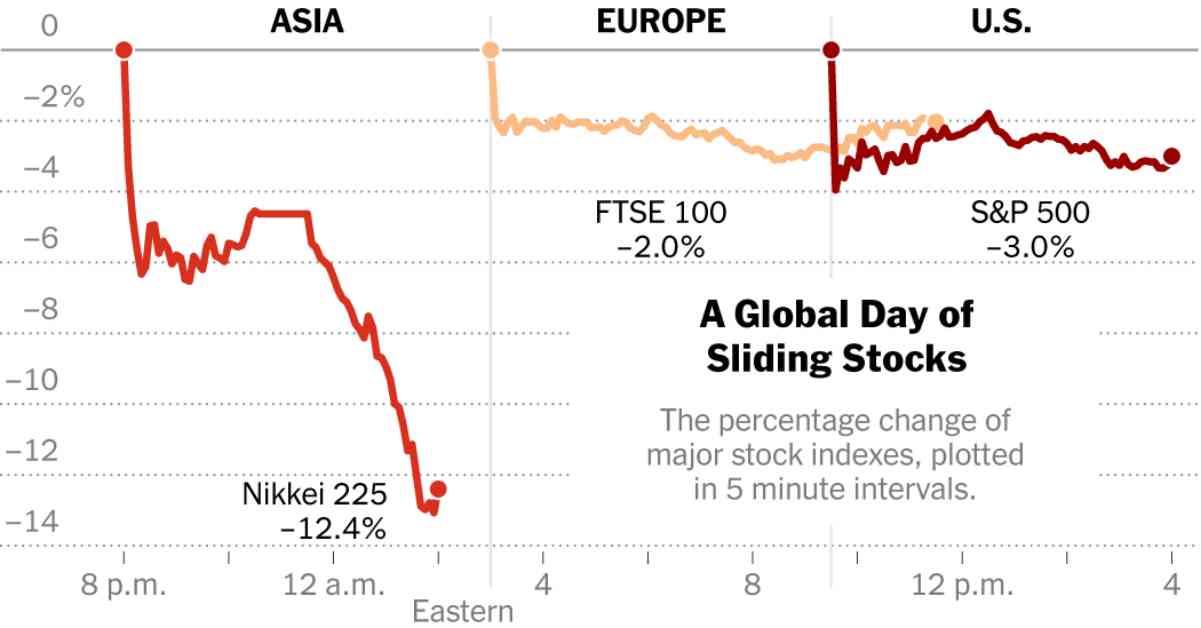Global Markets React to Concerns of Slowing U.S. Economic Growth
On August 5, 2024, fears of a slowdown in the U.S. economy sparked a chain reaction that reverberated across global markets. What began as a retreat in Asian markets last week quickly escalated into a widespread sell-off that gripped Europe and the United States.
The root of this turmoil can be traced back to a surge in the value of the yen, which disrupted the global flow of capital and prompted investors to reevaluate their positions in popular investments. This initial unease soon transformed into full-blown panic as concerns mounted that the Federal Reserve may have delayed interest rate cuts for too long, putting the U.S. economy at risk.
The release of a U.S. employment report on Friday only added fuel to the fire, revealing a significant slowdown in hiring and an increase in the unemployment rate. As trading opened in Asia and continued throughout Europe and the U.S. on Monday, stock prices plummeted, with the S&P 500 experiencing its most significant daily decline since September 2022.
While some viewed the sell-off as a warning sign of an impending recession, others saw it as a necessary correction to rein in excessive speculation, particularly in tech stocks and artificial intelligence. Despite the recent downturn, the S&P 500 remains up nearly 9% for the year, indicating a relatively healthy performance.
Andrew Brenner, head of international fixed income at National Alliance Securities, described the current market situation as “total panic,” acknowledging the pain it inflicts on investors. He cautioned that this turbulence may persist for several weeks, suggesting a period of uncertainty ahead.
No corner of the financial market was left untouched by the sell-off, as investors rushed to liquidate their assets and seek refuge from the broad-based decline. Oil futures, gold, and cryptocurrencies were all caught in the turmoil, further exacerbating the situation. Tech giants, whose stock prices heavily influence the market, faced significant losses, with the Nasdaq Composite index dropping by about 3.4%. In Europe, the pan-European Stoxx index also fell by 2.2%.
The current market volatility serves as a stark reminder of the interconnectedness of global economies and financial markets. As investors grapple with the implications of a potential U.S. economic slowdown, uncertainty looms over the future trajectory of markets worldwide. Only time will tell whether this sell-off is a temporary correction or a harbinger of more significant challenges to come.














